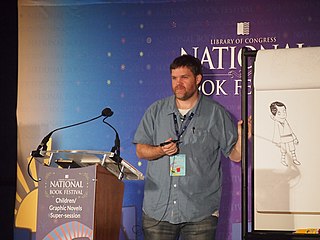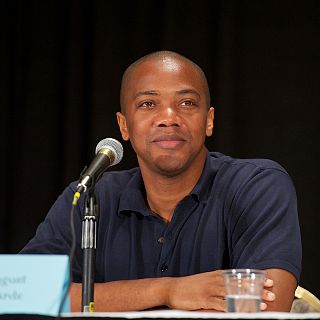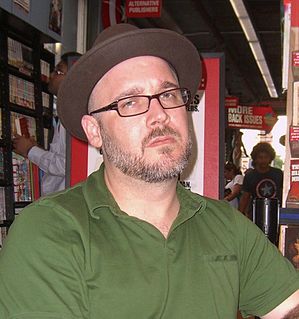A Quote by Harvey Pekar
I just continue to be kind of disappointed that people don't realize that and try and diversify the kind of work they are doing in comics.
Related Quotes
Just in terms of being able to be a professional artist, but also it's nice to not have to dread introductions. "What you do for a living?" It used to be easier just to tell people that I was a magazine illustrator than try to explain that I did comics, but not the kind of comics that they were used to, and no, it's not pornography, etc. And now people even of our parents' generation are familiar with the term "graphic novel," which is kind of amazing.
In early comics, you see the amazing awkwardness and bizarre reasoning in the storyline, and it's because comics hadn't really been invented yet. There was no format for them to follow. They were just making it up. So I try to incorporate that kind of awkwardness in my comics quite frequently, which is odd. In some ways, I can't be as awkward as I'd like. But I do think that's one way in which my comics are unusual, because I will try to make the artwork look bad, occasionally.
I love the students - they are remarkable, inspiring people. I would miss teaching if I stopped doing it. The kind of work I do is pretty diverse: I can cast a play while doing a polish of a screenplay, while thinking about a new play and revising another. In other words, the kind of work that I do during my work day is not just writing, yet it is all part of the job of being a playwright.
I just try to make comics for myself, try to give it some kind of unity throughout. That often involves tiny details. I'm never sure what's going to be obvious or what nobody will ever notice. I put stuff in my comics that I thought was blatantly obvious, and nobody noticed. And things that I think are buried in the background, everybody gets it. So I try to be consistently aware of every part of the frame.
But I think what Liam said just kind of hit it spot on, that the people in the capital are brainwashed and such a disconnect with what's actually happening. They don't realize what if it was their kids that were being put into the games? They just don't have the mindset to have that kind of compassion for people.
The good part of what comics trains you to do is it trains you - especially if you've worked in mainstream comics like Marvel and DC, or if you're just doing your own independent comics - to compartmentalize things and work on multiple things at the same time. And that's a skill that is incredibly handy in Hollywood, because within the first year that you get here, you realize there's a reason why every successful person in Hollywood has like seven or eight projects up in the air at any point.





































